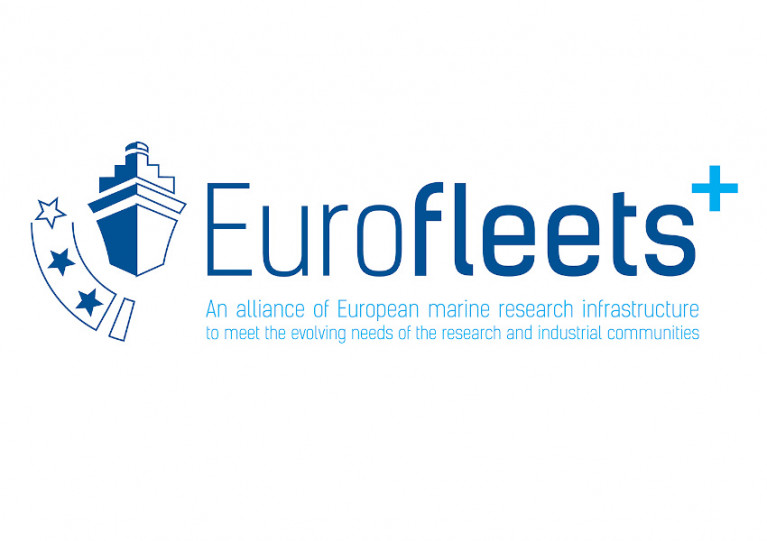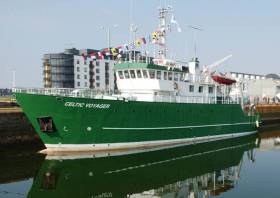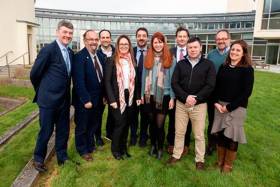Displaying items by tag: EurofleetsPlus
Marine Researchers Invited To Apply For EurofleetsPlus Programmes
EurofleetsPlus, the marine research consortium co-ordinated by the Marine Institute, is currently calling for applications from researchers for three programmes.
The first of these, the Ship-time and marine Equipment Application (SEA) Programme Call ‘Regional’, offers fully funded transnational access to 16 research vessels and six pieces of marine equipment to carry out ship-based research activities within any field of marine science.
Applications are welcome from international teams of researchers from academia and industry. Early career and female applicants are particularly encouraged to apply. This call will remain open for the submission of proposals until Tuesday 28 January.
Meanwhile, the Remote Transnational Access (RTA) Programme is providing researchers from all career stages with remote access to samples or data from EurofleetsPlus vessels.
And the Co-Principal Investigator (PI) Programme is specifically aimed at early career researchers, or researchers with no experience in leading a research cruise, to implement their own research together with experienced scientists in EurofleetsPlus scheduled cruises.
Applicants for the RTA and PI programmes are able to apply for all 27 state-of-the-art research vessels offered within EurofleetsPlus, including the RV Celtic Explorer. These programmes are both running calls, which allow the continuous submission of proposals until call closure at 31 January 2022.
For further information on funding conditions, eligibility criteria and application guidelines, visit the EurofleetsPlus website.
Co-ordinated by the Marine Institute, EurofleetsPlus is a unique consortium of research vessels, equipment and scientists supported by 42 marine institutes, universities, foundations and SMEs from 24 countries around the North Atlantic, Arctic, Southern and Pacific Ocean, Baltic, North, Mediterranean, and Black Sea.
EurofleetsPlus has received funding from the European Commission's Horizon 2020 Research and Innovation Programme under grant agreement No 824077.
Applications Open For EurofleetsPlus ‘Floating University’ In Cork Harbour
The EurofleetsPlus project is calling for applications from early-stage researchers of marine-related sciences to take part in a ‘Floating University’ on the RV Celtic Voyager next spring.
Applications are open until next Friday 22 November for the scheme co-ordinated in Ireland by the Marine Institute.
Mapping the Ocean Floor: An Introduction to Practical Aspects of Hydrographic Surveying will take place on board the RV Celtic Voyager in Cork Harbour from 19-25 February next year.
Teaching will focus on the operation of multi-beam echosounders and sub-bottom profiling and their applications for mapping and characterising the seabed. Offshore training will be supported by lectures, workshops and online resources.
On completion, participants of the Floating University will be able to demonstrate competence in designing and executing an offshore hydrographic survey, articulate understanding of the principles and methods applied to seabed surveying, as well as practice data acquisition and data processing for multi-beam echosounders and sub-bottom profiler systems.
Instruction will be from expert practitioners from the INFOMAR project with guest lecturers from the Marine Geology Research Group, University College Cork, and the National Institute of Oceanography and Applied Geophysics (OGS) in Italy.
A total of eight places are available for European postgraduate students (students of all nationalities enrolled at European universities) and online applications must be received by next Friday. Details of the Floating University and how to apply can be found HERE.
#MarineScience - The EurofleetPlus Kick-off meeting held at the Marine Institute in Galway this past week (Tuesday 5 to Thursday 7 March) announced details of the project that will facilitate access to the largest advanced marine science research vessel fleet across Europe, Greenland, USA and Canada, Bermuda and New Zealand.
Building on the achievements of the two preceding Eurofleets projects, the Marine Institute is a co-ordinator of EurofleetsPlus, a consortium comprising 42 marine institutes, universities, foundations and SMEs from 24 countries across Europe, North America and Oceania, with funding of €9.9 million.
Welcoming Ireland’s leadership role in this major EU Horizon 2020-funded project, Marine Minister Michael Creed said: “This recognises the high standards of scientific and operational excellence which continue to be achieved by the Marine Institute and is particularly relevant in the strategically important arena of research vessels operations, where the Marine Institute’s RV Celtic Explorer operates over 300 days of the year.
“Ireland’s participation in international research partnerships such as EurofleetsPlus adds value to Ireland’s ocean research capacity and I congratulate the Marine Institute on its outstanding success rate of 40% in Horizon 2020 funding bids totalling €6.6 million since 2014.”
Involving trans-national activities, the project will prioritise research on sustainable, clean and healthy oceans, linking with existing ocean observation infrastructures, as well as support innovative ideas working closely with industry.
Aodhán Fitzgerald, RV operations manager at the Marine Institute and EurofleetsPlus project co-ordinator, said that the project will enable access to an unprecedented number of vessels providing a significant increase in ship time at sea.
“With a fleet of 27 state-of-the-art research vessels from European and other international partners, this is extremely exciting for marine researchers as they now have opportunities to access research vessels in the North Atlantic, Mediterranean, Black Sea, North Sea, Baltic Sea, Pacific Southern Ocean and Ross Sea, through the competitive calls process.”
In addition to ship time, marine researchers and scientists will also have the opportunity to work with the best marine equipment and marine infrastructure exploring the ocean in ways that have not been possible in the past.
This will include access to seven new remotely operated vehicles (ROVs) to capture video and samples from the deepest parts of the ocean. The researchers will have access to five autonomous underwater vehicles for collecting data relating to the ocean environment.
In addition, a unique mobile portable telepresence unit will also enable remote access by researchers and diverse end users including the public, which is a first for Europe.
Establishing a strategic roadmap and sustainability plan, EurofleetsPlus will extend and enhance the capabilities of the European research vessel infrastructure, bringing new perspectives, new ideas, and new research and innovation tracks that will be beneficial to all.
At the kick-off meeting, Fitzgerald added: “I am looking forward to working with established and new partners over the next four years. This trans-national project will provide us all with a unique opportunity to develop our networking activities, ensure robust call processes with booking ship-time, as well as increase our stakeholder engagement at a national and international level.”
EurofleetsPlus is funded under Horizon 2020 Integrating Activity for Advanced Communities with respect to Environmental and Earth Sciences - Research Vessels. The project has received funding from the European Union's Horizon 2020 research and innovation programme under grant agreement No 824077.


























































